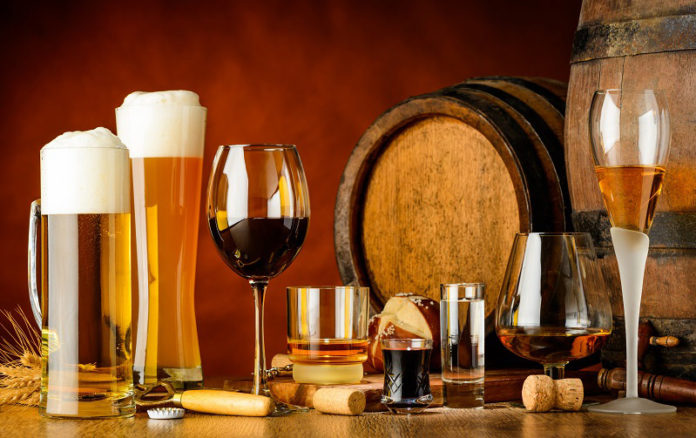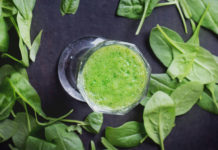At the end of a rough day, do you find yourself likely to crack open a beer or pour a glass of wine? Do you like to treat yourself with your favorite ice cream? While you may enjoy these ways of winding down, they may pose health risks over time.
A study entitled Glyphosate in Beer and Wine, done by the United States Public Interest Research Group (USPIRG), has found that traces of glyphosate are in common beers and wine–along with other foods–sold in the United States could be a factor in developing cancer later in life.
What is Glyphosate and What is it Used For?
Glyphosate is a compound in different herbicides and pesticides. It is particularly effective in weed killing, which is why it’s an ingredient in RoundUp, a common weed killer that I’ve warned about before. At first, glyphosate gained approval because scientists considered it an alternative to harsher pesticides on the market. However, RoundUp and its manufacturer, Monsanto, have recently come under fire for not adequately warning the public about its potential to cause cancer. A jury awarded a man in California $289 million after his claims that RoundUp caused his cancer. Several other lawsuits currently await courts across the country.
Recognizing glyphosate as a cancer-causing agent is a recent development. In 2015, the World Health Organization listed glyphosate as a probable carcinogen. As a result, France banned RoundUp 360 in January 2019. Other European Union countries are also considering bans.
Meanwhile, its use on wine grapes, barley, hops, and other food crops means some ends up in the finished products. Even organic crops may pick up traces from the soil or water since commercial farming uses Roundup so heavily.
Glyphosate in Your Alcoholic Beverages
In the study, members of USPIRG tested five brands of wine: Barefoot Cabernet Sauvignon, Beringer Founders Estate Moscato, Frey Organic Natural White, Inkarri Malbec: Certified Organic, and Sutter Home Merlot.
They tested 15 brands of beer: Ace Perry Hard Cider, Budweiser, Coors Light, Corona Extra, Guinness Draught, Heineken, New Belgium Fat Tire Amber Ale, Miller Lite, Peak Beer Organic IPA, Sam Adams New England IPA, Samuel Smith’s Organic Lager, Sierra Nevada Pale Ale, Stella Artois, Stella Artois Cidre, and Tsingtao Beer.
Of the 20 brands tested, only one — the Peak Beer Organic IPA — showed no detectable level of glyphosate.
All the beverages contained far below the maximum amount of glyphosate set by the Environmental Protection Agency. William Reeves, a toxicologist who works for Bayer (Monsanto’s parent company), told EcoWatch that a huge amount would be required to cause death. “Assuming the greatest value reported, 51.4 ppb, is correct, a 125-pound adult would have to consume 308 gallons of wine per day, every day for life to reach the US Environmental Protection Agency’s glyphosate exposure limit for humans. To put 308 gallons into context, that would be more than a bottle of wine every minute, for life, without sleeping.”
Even though tests show there is a low amount of glyphosate in the beers and wines, you aren’t entirely out of the woods. Glyphosate can stay in your body longer than other substances. Small amounts of exposure can disrupt the body’s various systems. Even a small amount can inadvertently start a reaction that causes breast cancer.
How Does it Get in Food and Beverages?
Because many farms use glyphosate as a weed killer, it appears in lots of foods. Besides beer and wine, glyphosate shows up in cereals and even Ben & Jerry’s ice cream. For their part, Ben & Jerry’s has said they would take steps to stop unknowingly producing ice cream that contains glyphosate.
Glyphosate tends to stick around in soils and fertilizers longer than other compounds. Its longevity means plants continue to absorb it even when it’s not in use anymore. Because of river runoff, irrigation techniques, or rainfall contamination, there are traces of glyphosate in organic foods, though at lower levels than non-organic foods.
What is Being Done About Glyphosate in the U.S.?
In the U.S., nothing is happening at the federal level to ban glyphosate use. However, different communities are trying to ban or limit the use of glyphosate. Irvine, California banned the use of RoundUp and other glyphosates on city properties. The state of California has listed glyphosates on Propositions 65, the state’s list of chemicals known to cause cancer.
Other states that are considering banning the use of glyphosates are turning to California to see how they should model any potential bans. There are many petitions circling the internet to call for bans, so search for one that affects your community.
Some plants (including weeds that farmers intend to kill) are developing resistance to glyphosate, according to this article from Grist. Perhaps the compound will render itself obsolete.
In the meantime, we can support research into alternative herbicides and pesticides for farms. And, you might grow some of your own produce at home or in community gardens, and even try your hand at home brewing.








